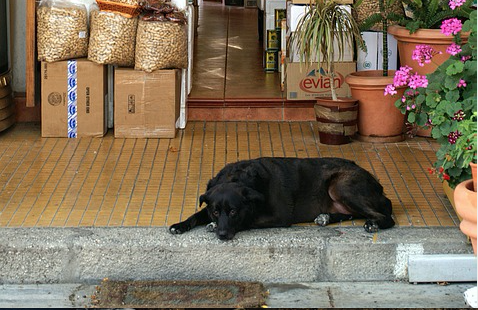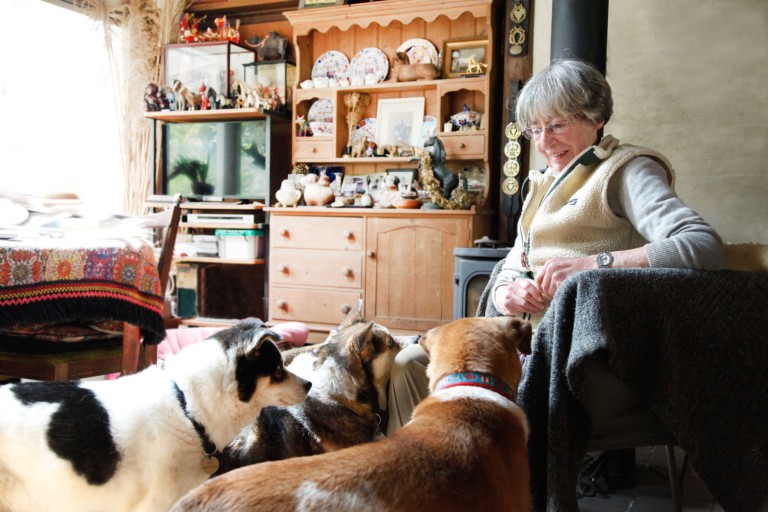A stint in Rhodes allowed me the opportunity to visit and help out at a very busy shelter caring for 200 dogs.
Most of the mixed breeds had been brought to the site by people who could no longer care for them. Officials had purposely removed the rest from the streets.
Having visited Rhodes on several occasions, I was amazed to watch packs of stray dogs arriving and waiting patiently at street crossings.
The signal to cross is the humans reacting to the ‘green man’ light … with the stray dogs close behind!
Not so on this visit.
The shelter vet explained that the volume of traffic and tourists had meant that the practice of capture, neuter, tag and release was no longer acceptable. Visitors to the city had found the site of the dogs worrisome and had expressed concern.
Instead, the dogs are held at the shelter or in foster homes until rescues can find suitable homes. Neutering and chipping are done before adoption, as is an interview.
A contract permits shelter staff to visit the dog at any time in the future to check on its welfare. However, the majority of dogs find themselves living abroad.
Whilst I was there, three small dogs were getting ready for a trip to Norway, and another organisation was preparing dogs for export to Germany, Canada and the UK.
It is clear that although the intention behind international adoption is admirable, it is clear that the benefit is only for those individual dogs.
Work continues at grass root level as we know the only way to resolve a stray dog problem is through human behaviour change.




